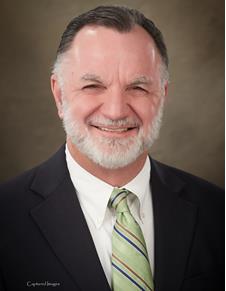
In our economic system, nothing drives the economy more than capital investment. It is the fuel for the engine of business and our country’s fiscal wellbeing. Very little constructive happens apart from men and women with funds to invest deciding to take risks for an attractive return on their money.
Several megatrends that have impacted our nation since the beginning of World War II have served to shift capital investments away from small communities into urban areas. Government tax policy, the explosion of business regulation at all levels, and cultural sentiments that have moved us away from capitalism to socialism are a few of the factors that have decreased the amount of capital investment in rural American and our economy as a whole. More recently, our government has made it less attractive to produce energy by traditional means which discourages capital investments and disproportionately impacts rural America. One does not see oil wells in the urban core of our cities.
As evidence, consider that between 1980 and 1989, business investment in equipment, software and structures grew by 2.7% per year on average and 5.7% in the decade of the ‘90’s; between 2000 and 2011, that number was a paltry 0.5% per year, less than one-tenth the amount of the previous decade. Moreover, as a share of Gross Domestic Product, business investment has declined by more than 3% since 1980. If we had the numbers divided between rural America and urban areas, I am sure that they would show that we have borne much more of the decline on a percentage basis.
The most obvious example of this in Bourbon County is the dearth of new construction over recent decades. One simply cannot create value by building something new, as evidenced by the gap between an appraisal and construction costs. This is also true of new houses. Nothing puts a damper on capital investment more than the potential of an immediate double-digit percentage loss on that investment. Naturally, an entrepreneur will build their building and their business in a location where value is created.
As an alternative, many Bourbon County men and women have stepped up and purchased struggling buildings and converted them to productive use, opening the doors to a new business in the process. These people love Bourbon County and are willing to risk the negative return on investment to see us move forward. Next time you drive by a newly remodeled business location, stop in and thank them by buying something.
Bourbon County REDI has this capital investment gap in our crosshairs, looking for ways to close the value gap and help facilitate growth in our business community; sometimes this involves grants, creative financing or angel investments. If you love Bourbon County, be a part of the solution by helping us reduce barriers to successful entrepreneurship and supporting the men and women who have invested their

Why not Fort Scott?? ‘Nucor’, were we even in the running or did we even make a play on something like this?
https://www.charlotteobserver.com/news/business/article260204060.html
The old buildings and homes are a plus. Many large and small tourist destinations have renovated homes and buildings. Fort Scott also has railroads which are a draw in many places. How about an engine or caboose in a park, or the renovation of the train station, if it is still there? A Victorian village, complete with trains would be a great place to visit or live… Just some thoughts.
“Just some thoughts”, indeed, however still thinking ‘small’, and that’s only going to feel like just barely running-in-place.
Nostalgia, living in the past is not going to get it done. Providing low-paying, low-skilled jobs, with no benefits (health insurance, etc.) , we already got a bounty of those. We may not need any more ‘store-front’ jobs, really?
Curious, i have a volunteer painting job this Monday that you could help me. Hopefully a couple of hours if we get a couple of others to join us. Craig 620-224-0167